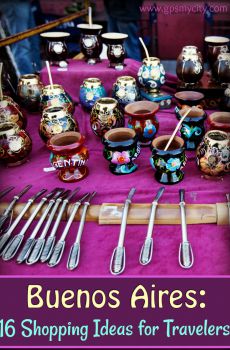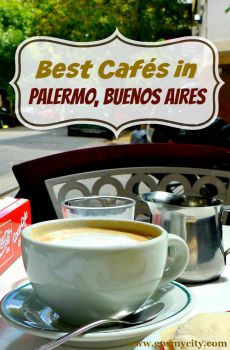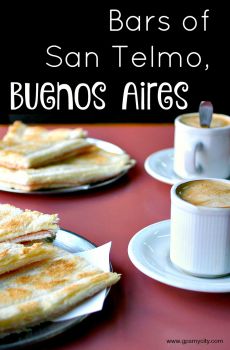Bosques de Palermo (Palermo Woods), Buenos Aires (must see)
Parque Tres de Febrero, popularly known as Bosques de Palermo (Palermo Woods), stands as an urban park spanning around 400 hectares (nearly 989 acres) situated within the Palermo neighborhood of Buenos Aires. It boasts remarkable arrays of woodland, serene lakes, and the captivating rose gardens, famously referred to as El Rosedal.
After the overthrow of the authoritarian rule of Juan Manuel de Rosas in 1852, his expansive properties in the north of Buenos Aires were designated as public lands. In 1862, a municipal decree was established to transform a significant portion of this land into a city park. The inception of Parque Tres de Febrero, named in commemoration of the defeat of Governor Rosas on February 3, 1852, was initiated in 1874 through the collaborative efforts of Congressman Vicente Fidel López and President Domingo Sarmiento. Sarmiento had been one of the opponents of Governor Rosas during that time.
The park's blueprint was envisioned by urban planner Jordán Czeslaw Wysocki and architect Julio Dormal. Its official inauguration took place on November 11, 1875. With the prosperous economic expansion of Buenos Aires in the subsequent years, the park was transitioned into municipal ownership in 1888. This paved the way for French Argentine urbanist Carlos Thays to undertake the task of expansion and enhancing its aesthetic appeal between 1892 and 1912. Thays' contributions encompassed the creation of the Zoological Gardens, the Botanical Gardens, the adjoining Plaza Italia, and the captivating Rose Garden.
The park is a daily retreat for numerous individuals, catering to both pedestrians and cyclists. However, the influx of visitors significantly rises during weekends. Within the park, three artificial lakes offer the opportunity for leisurely boat rides. Adjacent to the boating lake, one can find the Poets' Garden, adorned with stone and bronze busts of illustrious poets, including the likes of Jorge Luis Borges, Luigi Pirandello, and William Shakespeare.
After the overthrow of the authoritarian rule of Juan Manuel de Rosas in 1852, his expansive properties in the north of Buenos Aires were designated as public lands. In 1862, a municipal decree was established to transform a significant portion of this land into a city park. The inception of Parque Tres de Febrero, named in commemoration of the defeat of Governor Rosas on February 3, 1852, was initiated in 1874 through the collaborative efforts of Congressman Vicente Fidel López and President Domingo Sarmiento. Sarmiento had been one of the opponents of Governor Rosas during that time.
The park's blueprint was envisioned by urban planner Jordán Czeslaw Wysocki and architect Julio Dormal. Its official inauguration took place on November 11, 1875. With the prosperous economic expansion of Buenos Aires in the subsequent years, the park was transitioned into municipal ownership in 1888. This paved the way for French Argentine urbanist Carlos Thays to undertake the task of expansion and enhancing its aesthetic appeal between 1892 and 1912. Thays' contributions encompassed the creation of the Zoological Gardens, the Botanical Gardens, the adjoining Plaza Italia, and the captivating Rose Garden.
The park is a daily retreat for numerous individuals, catering to both pedestrians and cyclists. However, the influx of visitors significantly rises during weekends. Within the park, three artificial lakes offer the opportunity for leisurely boat rides. Adjacent to the boating lake, one can find the Poets' Garden, adorned with stone and bronze busts of illustrious poets, including the likes of Jorge Luis Borges, Luigi Pirandello, and William Shakespeare.
Want to visit this sight? Check out these Self-Guided Walking Tours in Buenos Aires. Alternatively, you can download the mobile app "GPSmyCity: Walks in 1K+ Cities" from Apple App Store or Google Play Store. The app turns your mobile device to a personal tour guide and it works offline, so no data plan is needed when traveling abroad.
Bosques de Palermo (Palermo Woods) on Map
Sight Name: Bosques de Palermo (Palermo Woods)
Sight Location: Buenos Aires, Argentina (See walking tours in Buenos Aires)
Sight Type: Park/Outdoor
Sight Location: Buenos Aires, Argentina (See walking tours in Buenos Aires)
Sight Type: Park/Outdoor
Walking Tours in Buenos Aires, Argentina
Create Your Own Walk in Buenos Aires
Creating your own self-guided walk in Buenos Aires is easy and fun. Choose the city attractions that you want to see and a walk route map will be created just for you. You can even set your hotel as the start point of the walk.
May Avenue Walking Tour
May Avenue is one of Buenos Aires’ most emblematic boulevards, a grand east–west axis that reflects the city’s political, cultural, and architectural evolution. Its name honors the May Revolution of 1810, when residents of Buenos Aires removed the Spanish viceroy and initiated the process that ultimately led to Argentina’s independence.
Plans for a monumental boulevard connecting the... view more
Tour Duration: 2 Hour(s)
Travel Distance: 2.3 Km or 1.4 Miles
Plans for a monumental boulevard connecting the... view more
Tour Duration: 2 Hour(s)
Travel Distance: 2.3 Km or 1.4 Miles
Recoleta Neighborhood Walking Tour
One of Buenos Aires’ most beautiful neighborhoods, Recoleta is the city’s heart of art and elegance, grace and modernism, culture and leisure. Here you will find lots of things to do, like visiting museums, galleries and cultural centers; relaxing in one of the beautiful parks and plazas; or sampling the delicious local food.
This walking tour along Recoleta begins at the Ateneo Grand... view more
Tour Duration: 2 Hour(s)
Travel Distance: 3.4 Km or 2.1 Miles
This walking tour along Recoleta begins at the Ateneo Grand... view more
Tour Duration: 2 Hour(s)
Travel Distance: 3.4 Km or 2.1 Miles
Buenos Aires Introduction Walking Tour
Buenos Aires, the capital of Argentina, has a history marked by exploration, colonial rivalry, mass immigration, and political change. Its name derives from the Spanish dedication “Our Lady Saint Mary of the Good Air,” a title of the Virgin Mary venerated by sailors from Sardinia. The phrase “Buen Aire” originally referred to the clean, favorable winds near a sanctuary in the city of... view more
Tour Duration: 2 Hour(s)
Travel Distance: 4.7 Km or 2.9 Miles
Tour Duration: 2 Hour(s)
Travel Distance: 4.7 Km or 2.9 Miles
Palermo Area Walking Tour
Situated just back from one of the main thoroughfares, Santa Fe Avenue (Avenida Santa Fe), Palermo is a relaxed and culturally delightful area full of restaurants, cafes, and wall murals. The tree-lined streets are shady and many of the older Spanish-style houses were converted into small shops without compromising their original character. It’s an excellent place in which to sample the city’s... view more
Tour Duration: 2 Hour(s)
Travel Distance: 3.5 Km or 2.2 Miles
Tour Duration: 2 Hour(s)
Travel Distance: 3.5 Km or 2.2 Miles
Useful Travel Guides for Planning Your Trip
Popular Palermo Restaurants, Buenos Aires
Although many visitors tend to think that Argentina is a meat and potatoes country, the rich cultural heritage from Italy, Spain, Portugal, and other European countries provide a veritable smorgasboard of dining options. Palermo is the barrio in Buenos Aires often referred to as 'The Restaurant...
Buenos Aires: 16 Shopping Ideas for Travelers
Other than a cool place to be and a dream destination for many adventure-minded folk, Buenos Aires is a great culture hub where one can experience first-hand all that Argentina has to offer - great football, terrific wine, killer steaks, and much much more. This guide is to help you steer yourself...
Top 7 Cafes in Palermo, Buenos Aires
The word "Palermo", believe it or not, may refer not just to Sicily, Italy, but also to Buenos Aires, Argentina. Indeed, this neighborhood (barrio) is largest in the city and is trendy and bohemian, renowned for its boutique shopping, cafes, restaurants, bars, and nightclubs. Oftentimes,...
Top 5 Bars in San Telmo, Buenos Aires
With its cobbled streets, colonial era buildings and vibrant music and art scene, San Telmo is a great place to soak up the eclectic nature of Buenos Aires’ nightlife. The area boasts dozens of bars and cafes, with some of the city’s oldest lying next to the more modern. Indeed, San Telmo...











